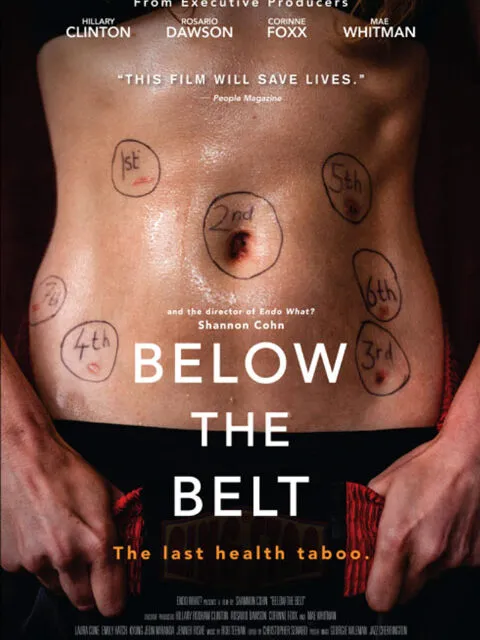Fears, doubts, difficulties and prejudices, but also hope and light. The American docufilm ‘Below the belt. The last health taboo‘ recounts the journey through the emotions of four young women with one drama as their common denominator: endometriosis, a chronic inflammatory disease linked to the menstrual cycle that is the leading cause of pelvic pain and infertility even in young women. An invalidating, ‘invisible’, painful and often neglected disease that affects 150 million women in the world, of whom at least 3 million only in Italy. Filmed over a 10-year period by American director Shannon Cohn, who herself suffers from endometriosis, the docu-film, produced by Hillary Clinton, Senator Elizabeth Warren and actress Rosario Dawson, among others, will have its national premiere screening on Saturday 12 October at 6.30 p.m. at the Teatro Ristori in Verona and then be distributed worldwide, accompanied by a clip of Clinton.

After the screening there will also be space for a talk with the director. The initiative has the patronage of the Municipality, through the Department for Gender Equality, and the promoter is Dr. Marcello Ceccaroni, director of the Department of Obstetrics and Gynaecology of the Ircss Sacro Cuore Don Calabria in Negrar di Valpolicella (Province of Verona) as well as president and founder of the International School of Surgical Anatomy (Issa). Ceccaroni is among the international experts in the treatment of endometriosis and in Negrar has revolutionised the treatment of the disease with a minimally invasive technique, known on a global scale as the ‘Negrar method’, capable of improving the quality of life of thousands of women.

“Endometriosis can cause reduced fertility in about 40 per cent of severe cases and severe physical pain, often underestimated or considered normal“, Ceccaroni explains “The ideal solution to combat it is pharmacological, so as to halt the progression of the disease and ensure an adequate quality of life, but this is only possible through early diagnosis. More than 60 per cent of adolescent girls suffering from debilitating menstrual pain may already be suffering from the disease, but the diagnosis often arrives with a delay of seven to ten years’. He adds: ‘The impact on the lives of women who suffer from it is dramatic and too often their symptoms are downplayed or ignored. Endometriosis is still a taboo and must be made known“.
















